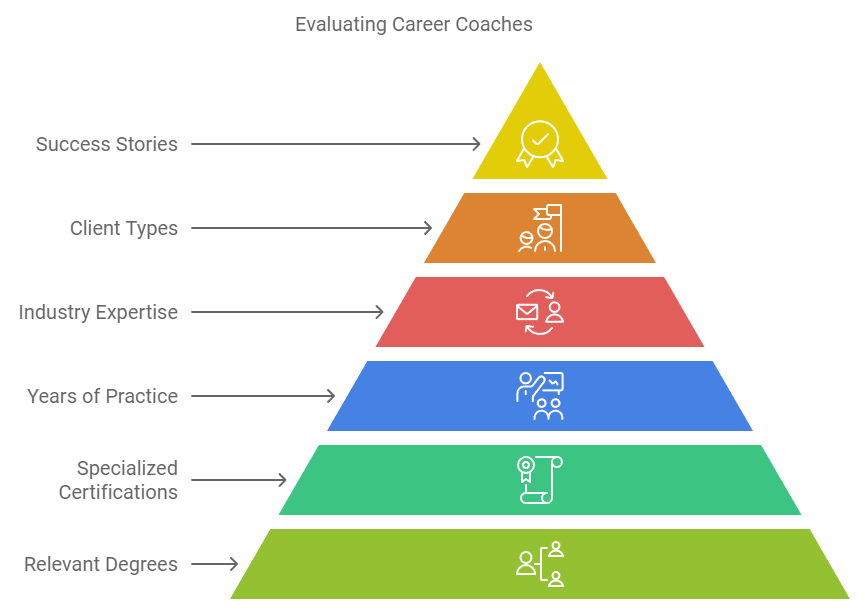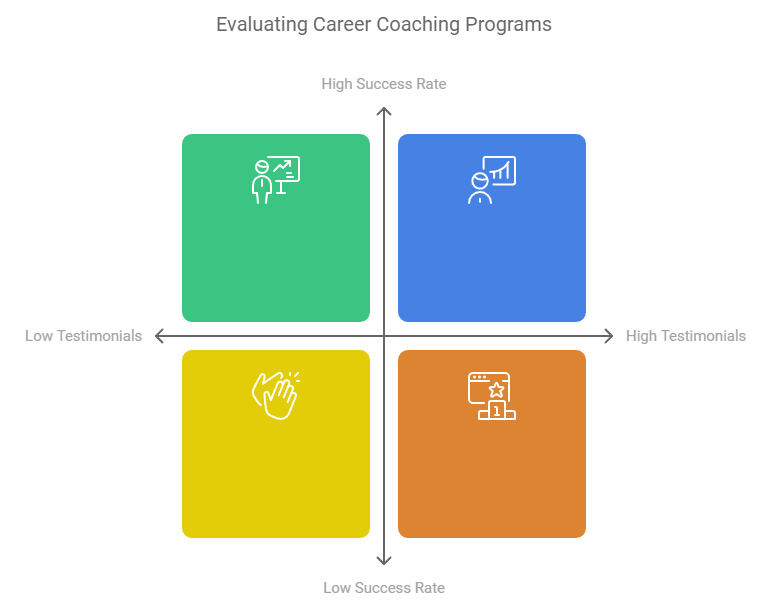Choosing the right career coaching program is a crucial step in advancing your professional life. This article guides you through the process of selecting a program that aligns with your goals and needs. We’ll explore the importance of defining your objectives, researching different coaching styles, and evaluating coach credentials. Additionally, we’ll discuss how to assess program structure, consider costs, and read client testimonials. By the end, you’ll have a clear understanding of how to make an informed decision when selecting a career coaching program that can truly transform your career trajectory.
Embarking on a career coaching journey can be a game-changer for your professional development. Whether you’re seeking a career change, aiming for a promotion, or simply looking to enhance your skills, the right coaching program can provide invaluable guidance and support. However, with numerous options available, it’s essential to approach the selection process thoughtfully. This article will delve into the key factors you should consider when choosing a career coaching program. From understanding your specific needs to evaluating the coach’s expertise and the program’s methodology, we’ll equip you with the knowledge to make a choice that best serves your career aspirations and personal growth.
Understanding Your Career Goals and Aspirations
Before embarking on your journey with career coaching, it’s crucial to have a clear understanding of your professional goals and aspirations. This foundational step sets the stage for a successful coaching experience, ensuring that you and your coach are aligned in your objectives. By taking the time to reflect on your career aspirations, you’ll be better equipped to choose a career coaching program that caters to your specific needs and helps you achieve your desired outcomes.
To begin this process of self-discovery, consider creating a comprehensive list of your short-term and long-term career goals. Ask yourself thought-provoking questions such as:
- What does your ideal career look like in five, ten, or even twenty years?
- What skills and experiences do you need to acquire to reach your professional aspirations?
- Are there any specific industries or roles that particularly interest you?
- What values and principles are most important to you in your career?
Once career goals and aspirations have been identified, it is essential to assess the current situation and determine the gaps between the current position and the desired position. This self-assessment will help to identify the areas where career coaching can be most beneficial. Consider creating a SWOT analysis (strengths, weaknesses, opportunities, and threats) to gain a comprehensive understanding of the professional landscape. Such self-assessment techniques can provide valuable insights into the career path.
| Strengths | Weaknesses |
|---|---|
| Your unique skills and talents | Areas for improvement or skill gaps |
| Opportunities | Threats |
| Potential career advancements or industry trends | Challenges or obstacles in your career path |
By gaining clarity on your career goals and aspirations, you’ll be better prepared to communicate your needs to potential career coaches and select a program that aligns with your objectives. Remember, the most effective career coaching relationships are built on a foundation of mutual understanding and shared goals, so take the time to thoroughly explore and articulate your professional aspirations before embarking on your coaching journey.
Evaluating Different Types of Career Coaching Programs
When it comes to career coaching, there are various types of programs available to suit different needs and goals. Understanding these different types can help you make an informed decision about which program is best for your career development. From one-on-one coaching sessions to group workshops and online courses, each type of career coaching program offers unique benefits and approaches to help you achieve your professional aspirations.
One popular type of career coaching program is individual coaching, where you work directly with a coach in personalized sessions. These one-on-one interactions allow for tailored guidance and focused attention on your specific career challenges and goals. Another option is group coaching, which offers the advantage of peer support and collaborative learning experiences. Group sessions can be particularly beneficial for networking and gaining diverse perspectives on career-related issues.
Online career coaching programs have gained significant popularity in recent years, offering flexibility and accessibility to individuals with busy schedules or those who prefer remote learning. These programs often include a combination of self-paced modules, video tutorials, and virtual coaching sessions. Additionally, some career coaching programs specialize in specific industries or career stages, such as executive coaching for senior-level professionals or transition coaching for those looking to change careers.
| Type of Coaching | Key Features | Best Suited For |
|---|---|---|
| Individual Coaching | Personalized attention, tailored guidance | Those seeking intensive, one-on-one support |
| Group Coaching | Peer support, collaborative learning | Individuals who thrive in group settings |
| Online Coaching | Flexibility, self-paced learning | Busy professionals, remote learners |
When evaluating different types of career coaching programs, it’s essential to consider your learning style, schedule, and specific career goals. Some programs may focus on particular aspects of career development, such as:
- Resume writing and interview skills
- Leadership development
- Career transition strategies
- Work-life balance and stress management
- Entrepreneurship and business development
It’s also worth noting that many career coaching programs incorporate a blend of different approaches to provide a comprehensive learning experience. For example, a program might combine individual coaching sessions with group workshops and online resources to offer a well-rounded support system for career development. As you explore your options, consider reaching out to program providers for more information and, if possible, attend introductory sessions or consultations to get a feel for the program’s style and approach.
Assessing the Credentials and Experience of Career Coaches
When embarking on your journey to find the right career coaching program, one of the most crucial aspects to consider is the credentials and experience of the coaches involved. A highly qualified and experienced career coach can make a significant difference in the effectiveness of your career coaching experience. It’s essential to thoroughly evaluate the background, qualifications, and track record of potential coaches to ensure you’re investing your time and resources wisely.
Start by examining the educational background of the career coaches you’re considering. Look for professionals who have obtained relevant degrees in fields such as psychology, counseling, human resources, or business administration. Additionally, seek out coaches who have pursued specialized certifications in career coaching, such as those offered by reputable organizations like the International Coach Federation (ICF) or the Professional Association of Resume Writers and Career Coaches (PARW/CC). These certifications demonstrate a commitment to professional development and adherence to industry standards.
Experience is another critical factor to assess when choosing a career coach. Consider the following aspects of a coach’s experience:
- Years of practice in career coaching
- Specific industries or sectors they have expertise in
- Types of clients they have worked with (e.g., executives, recent graduates, career changers)
- Success stories and measurable outcomes achieved for past clients
Don’t hesitate to ask potential coaches for references or case studies that showcase their ability to help clients achieve their career goals. A reputable career coach should be able to provide concrete examples of how they’ve assisted individuals in similar situations to yours. Additionally, consider researching online reviews and testimonials from previous clients to gain insights into the coach’s effectiveness and working style.

Considering the Program’s Methodology and Approach
When embarking on your journey to find the perfect career coaching program, it’s crucial to delve deep into the methodology and approach employed by different coaches and programs. The way a career coaching program is structured and delivered can significantly impact its effectiveness and your overall experience. A well-designed program should offer a comprehensive and tailored approach that aligns with your unique career goals and learning style.
One of the key aspects to consider is the program’s framework for personal assessment and goal-setting. A robust career coaching program should include tools and techniques for self-discovery, such as personality assessments, skills inventories, and values clarification exercises. These elements help you gain a deeper understanding of your strengths, weaknesses, and motivations, which are essential for making informed career decisions. Additionally, look for programs that emphasize the development of actionable plans and strategies to achieve your career objectives.
Another important factor to evaluate is the program’s approach to skill development and networking. Effective career coaching should not only focus on helping you identify your ideal career path but also equip you with the necessary skills to succeed in your chosen field. This may include:
- Resume writing and interview preparation
- Personal branding and online presence management
- Networking strategies and relationship-building techniques
- Leadership and communication skills development
Programs that offer a combination of theoretical knowledge and practical application tend to be more effective in preparing you for real-world career challenges.
The delivery method of the career coaching program is another crucial aspect to consider. Some programs offer one-on-one coaching sessions, while others may utilize group coaching or a combination of both. Each approach has its own benefits:
| Coaching Method | Benefits |
|---|---|
| One-on-One Coaching | Personalized attention, tailored advice, confidentiality |
| Group Coaching | Peer support, diverse perspectives, cost-effective |
| Hybrid Approach | Combines benefits of both methods, flexibility |
Consider which format aligns best with your learning style and personal preferences to ensure you get the most out of your career coaching experience.
Lastly, it’s essential to examine the program’s approach to accountability and follow-up. A high-quality career coaching program should have mechanisms in place to track your progress, provide ongoing support, and help you stay motivated throughout your career journey. Look for programs that offer:
Examining the Program’s Success Rate and Client Testimonials
When considering a career coaching program, one of the most crucial factors to evaluate is its success rate and the testimonials from previous clients. These indicators provide valuable insights into the effectiveness of the program and can help you make an informed decision about whether it’s the right fit for your career development needs. A high success rate suggests that the career coaching program has a proven track record of helping individuals achieve their professional goals, while positive client testimonials offer firsthand accounts of the program’s impact on real people’s careers.
To assess a program’s success rate, look for concrete statistics and metrics that demonstrate tangible outcomes. For example, a reputable career coaching program might showcase data such as:
- Percentage of clients who successfully transitioned to new careers
- Average salary increase for program participants
- Number of clients who received promotions after completing the program
- Percentage of clients who reported increased job satisfaction
Client testimonials, on the other hand, offer a more personal perspective on the career coaching experience. These firsthand accounts can provide valuable insights into the program’s methodology, the coach’s approach, and the overall impact on individual careers. When examining testimonials, pay attention to specific details about how the program helped clients overcome challenges, develop new skills, or achieve their career goals. It’s also worth noting if the testimonials come from individuals in similar industries or with comparable career aspirations to your own, as this can indicate the program’s relevance to your specific needs.

Analyzing the Cost and Value of Career Coaching Programs
When considering investing in career coaching, it’s crucial to analyze both the cost and value of various programs to ensure you’re making a wise decision. The price of career coaching can vary significantly, ranging from a few hundred dollars for short-term guidance to several thousand for comprehensive, long-term programs. However, it’s essential to remember that the most expensive option isn’t always the best, and a lower-priced program doesn’t necessarily mean inferior quality.
To truly assess the value of a career coaching program, you need to look beyond the price tag and consider the potential return on investment. A high-quality career coaching program can offer numerous benefits, including:
- Improved job satisfaction and fulfillment
- Higher earning potential
- Enhanced career advancement opportunities
- Better work-life balance
- Increased confidence and self-awareness
When evaluating the cost of a career coaching program, it’s important to consider the format and duration of the coaching sessions. Some programs offer one-on-one coaching, while others provide group sessions or a combination of both. Additionally, the length of the program can impact its overall value. A shorter program might be more affordable upfront, but a longer, more comprehensive program could potentially yield greater long-term benefits.














